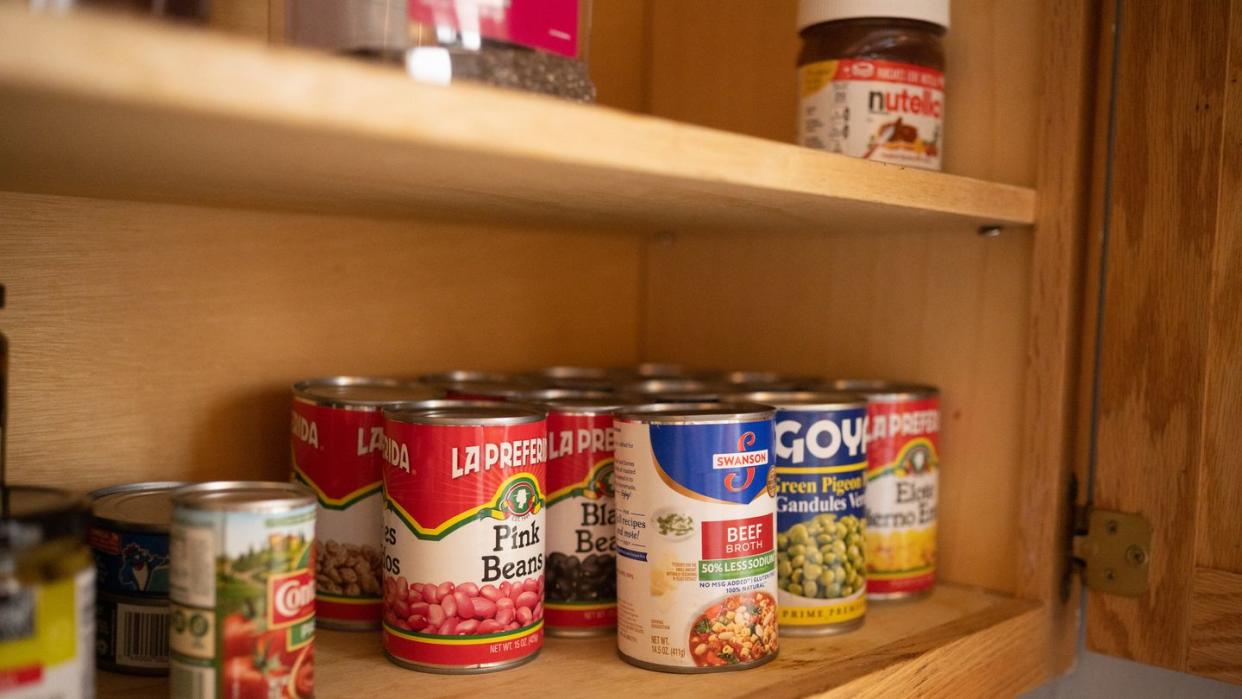This Is How Long Your Canned Goods Actually Last

A pantry full of canned goods will come in handy when you're whipping up a quick meal. But it's safe to say that many cans probably linger a little too long in your cupboard. Maybe you're making pasta and you pick up a can of tomatoes and wonder whether it's still safe to use past the date on the label.
"In many cases, shelf-stable foods like canned goods are still safe to eat after their dates have passed," said Janilyn Hutchings, a food scientist and Certified Professional in Food Safety for StateFoodSafety.
"However, keep in mind that the quality of expired canned goods will likely not be as good as new cans. In other words, the flavor, texture, and nutritional value of canned food can decrease over time," she said.
What Does the Date On the Can Really Mean?
These dates on canned goods are more about quality than expiration. Canned goods are often labeled with closed dates, which are the date of manufacture. There are often open dates, which many of us think of as expiration dates. But aside from baby food and infant formula, there aren't any federal regulations governing open date labels on food. This means phrases like "best by" and "use by" are recommendations for quality, not necessarily an expiration date.
"How long canned goods last depends on the type of canned food," said Hutchings. Low-acid foods like meat, soups, beans, carrots, and gravy will last longer than high-acid foods like tomatoes, pickles, sauerkraut, and fruit. She said that low-acid foods can last two to five years before they're open, and three to four days in the fridge after opening. Meanwhile, high-acid foods will last 12 to 18 months and five to seven days in the fridge after being opened. And if you've read our home canning guide and are wondering about canned peaches, you'll want to eat them within one year.
While these timeframes are recommendations for when canned goods are at their best, canned goods are still susceptible to botulism, a deadly food poisoning caused by the bacteria Clostridium botulinum. According to the USDA, shelf-stable foods that are incorrectly or minimally processed are susceptible to botulism. Regardless of the "use by" date, Hutchings said to toss any canned item that is leaking, bulging, or dented; jars that are cracked or have loose lids; food that has a foul smell; and any cans or jars that release liquid when opened.
So how should you store canned goods to make sure they last? You'll want to store them in a cool, dry place like a kitchen cabinet or pantry. Hutchings said to avoid storing cans in garages, basements, under sinks, or above stoves, because you want to avoid extreme high and low temperatures.
You Might Also Like

